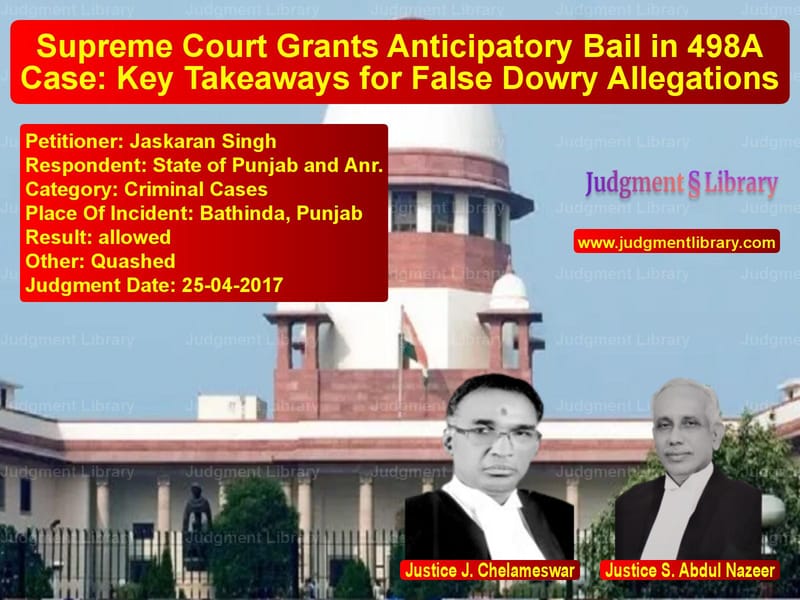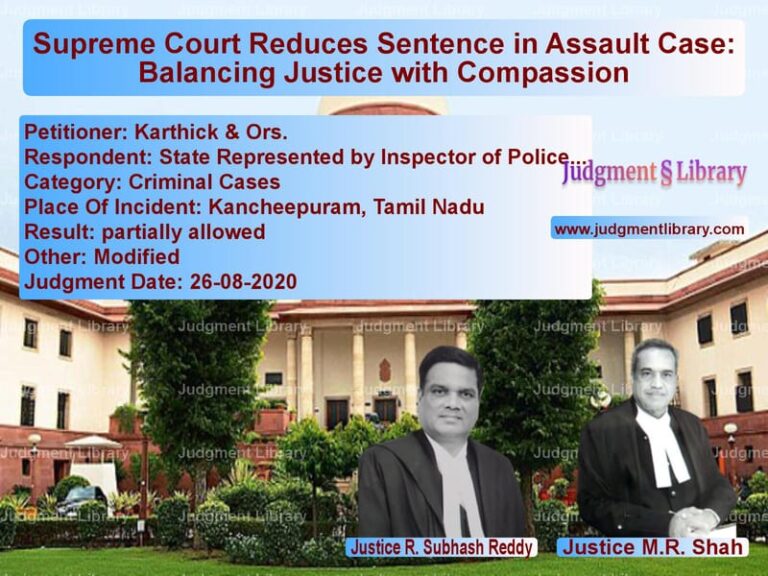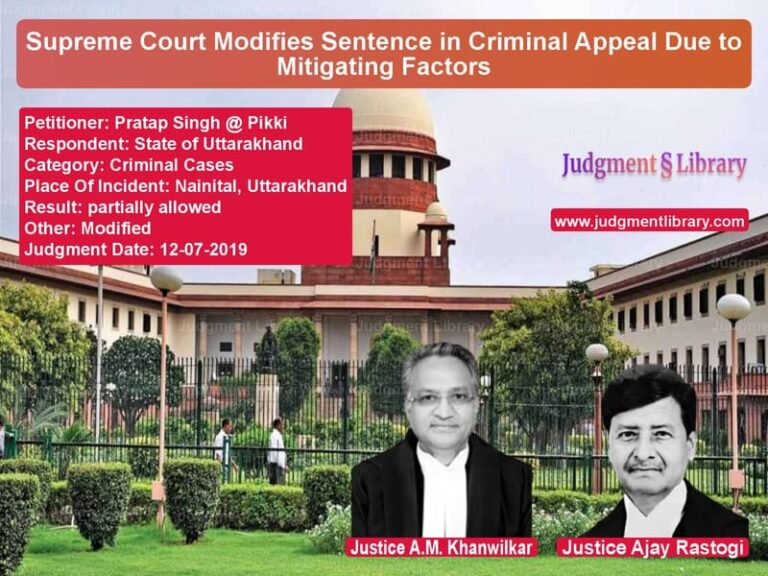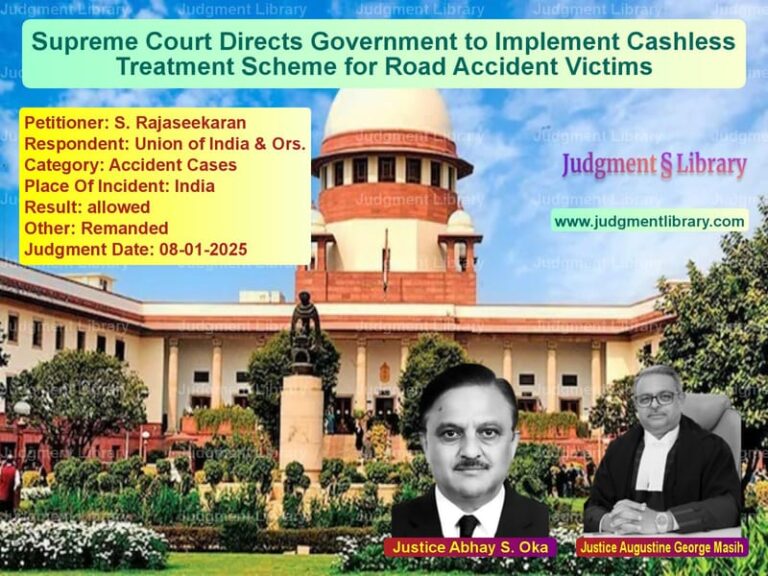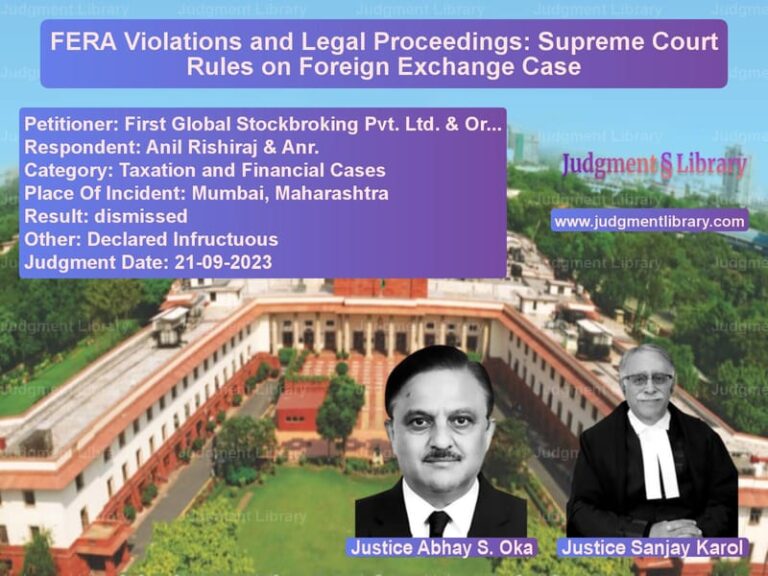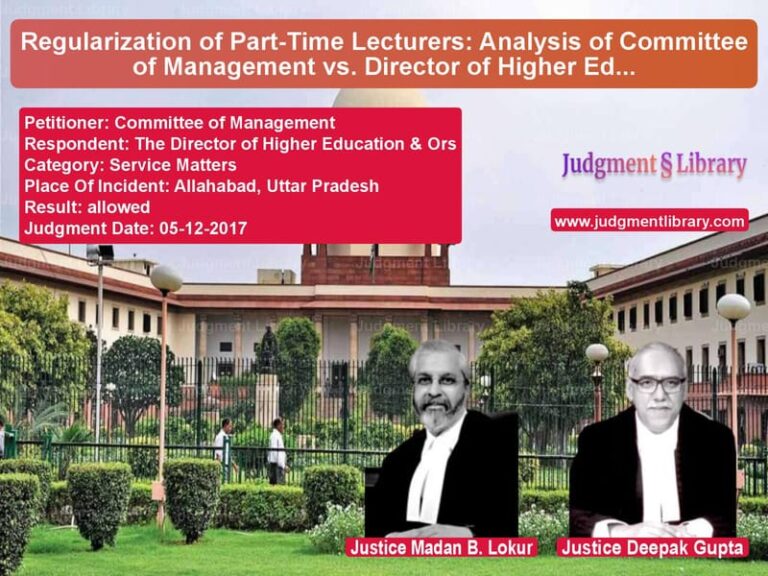Supreme Court Grants Anticipatory Bail in 498A Case: Key Takeaways for False Dowry Allegations
In a significant ruling, the Supreme Court of India granted anticipatory bail to the appellant Jaskaran Singh, accused under Sections 498A, 494, 406, 420, and 120B of the Indian Penal Code (IPC) in a case filed by his wife. The judgment in Jaskaran Singh vs. State of Punjab sheds light on how courts evaluate bail applications in cases involving allegations of dowry harassment and bigamy.
Background of the Case
The case originated from an FIR registered on July 26, 2016, by the complainant (respondent no.2), alleging that her husband, Jaskaran Singh, had married another woman, Karamveer Kaur, while their marriage was still legally valid. The allegations also included cruelty, harassment, fraud, and criminal conspiracy.
The accused filed an application for anticipatory bail before the Punjab and Haryana High Court. However, the High Court dismissed his application on September 29, 2016, based on the complainant’s evidence, including a petition filed by Karamveer Kaur under Section 9 of the Hindu Marriage Act for the restitution of conjugal rights.
Petitioner’s Arguments
The defense for Jaskaran Singh presented the following arguments:
- The allegations were false and maliciously framed by the complainant to harass him.
- He had never married Karamveer Kaur, making the charge under Section 494 IPC (bigamy) baseless.
- The complaint relied on a petition under Section 9 of the Hindu Marriage Act filed by Karamveer Kaur, but this petition was withdrawn on February 24, 2016.
- Despite the allegations, the complainant was still residing in his matrimonial home with his mother, which contradicts her claims of harassment.
- There were no prior criminal cases against the appellant except the present one.
Respondent’s Arguments
The prosecution and complainant opposed the bail, arguing:
- Jaskaran Singh had committed bigamy by marrying another woman while still married.
- The complainant faced continuous mental and physical harassment.
- Given the nature of the offenses, granting bail could allow the accused to tamper with evidence.
Supreme Court’s Analysis
The Supreme Court carefully examined the allegations and found crucial inconsistencies:
- The High Court had relied on the petition filed by Karamveer Kaur as evidence of bigamy. However, it failed to consider that this petition was withdrawn before the FIR was lodged.
- The complainant continued to live in the matrimonial home, which contradicted her allegations of being forced out due to harassment.
- There was no documentary proof of a second marriage.
- The accused had no prior criminal history.
Based on these factors, the Court ruled:
“The High Court has not taken into consideration the withdrawal of the Section 9 petition. There are no criminal antecedents against the appellant except the present case. We are of the view that the High Court is not justified in rejecting the application of the appellant for grant of anticipatory bail.”
Final Verdict
The Supreme Court set aside the High Court’s order and granted anticipatory bail to the accused, subject to the following conditions:
- In the event of arrest, the accused would be released on bail upon depositing Rs. 25,000 in cash.
- The accused must fully cooperate with the investigation.
Implications of the Judgment
This ruling has significant implications for cases involving Section 498A IPC and anticipatory bail:
- False Dowry Cases: The judgment highlights the need for courts to scrutinize evidence before denying bail in dowry harassment cases.
- Bigamy Allegations: If a second marriage is alleged, courts must seek conclusive proof before taking punitive measures.
- Impact on Bail Law: This case reinforces that anticipatory bail should not be denied based on frivolous allegations or incomplete evidence.
Conclusion
The Supreme Court’s ruling in Jaskaran Singh vs. State of Punjab underscores the importance of due process and protection against false accusations. By granting anticipatory bail, the Court ensured that individuals are not subjected to unnecessary detention based on unverified claims. This judgment serves as a crucial reference in cases involving dowry laws and matrimonial disputes.
Don’t miss out on the full details! Download the complete judgment in PDF format below and gain valuable insights instantly!
Download Judgment: Jaskaran Singh vs State of Punjab and Supreme Court of India Judgment Dated 25-04-2017.pdf
Direct Downlaod Judgment: Direct downlaod this Judgment
See all petitions in Bail and Anticipatory Bail
See all petitions in Dowry Cases
See all petitions in Fraud and Forgery
See all petitions in Judgment by J. Chelameswar
See all petitions in Judgment by S. Abdul Nazeer
See all petitions in allowed
See all petitions in Quashed
See all petitions in supreme court of India judgments April 2017
See all petitions in 2017 judgments
See all posts in Criminal Cases Category
See all allowed petitions in Criminal Cases Category
See all Dismissed petitions in Criminal Cases Category
See all partially allowed petitions in Criminal Cases Category

